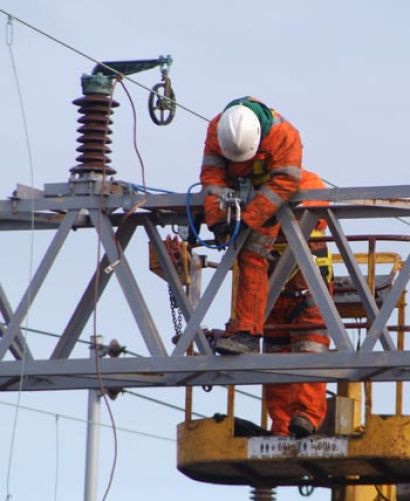THE biggest programme of electrification in the history of Britain’s railways could get the green light next spring “if the sums add up” – according to the Government’s most senior railway civil servant.
Dr Mike Mitchell, director general-National Networks at the Department for Transport, was speaking to the annual conference of The Railway Forum, the industry’s top-level lobbying group.
He was standing in for ex-rail minister Tom Harris – who had lost his job in the government reshuffle – and for Lord Adonis, who had only just taken over as the new Minister of State for Transport.
Without referring directly to last year’s government White Paper on the future of the railways, which seemed to ignore electrification and suggested trains in future could be powered by hydrogen cells, Dr Mitchell said the benefits of electrification, including gains for the environment and lower train operating costs, “are not lost on us, but there only finite sums of money available”.
But he said the DfT was working closely with the industry on developing a possible rolling programme, and on driving down the costs of installing electrification.
“There is still much work to be done. But we expect to have this finished next spring (2009). If the sums add up, we could see the biggest electrification programme in our industry’s history,” he said.
But Dr Mitchell was more downbeat about development of new high-speed lines, pointing out that Britain was a more compact country with less distance between major centres than others, such as France and Spain, that have developed high-speed services.
He added that high speed was not necessarily the right solution because as speed increased, energy consumption also increased. But he said Network Rail was looking at the options “and we are ready to listen”.
Speaking generally about the rail industry, Dr Mitchell said it was “a big success story”.
Performance was up and delays were down, he said. In the past year over 90 per cent of trains were ‘on time’ and the number that were late or cancelled had halved.
Britain’s train operators were carrying more passengers than ever before on a network two-thirds the size it was 60 years ago, and new trains meant that Britain had the youngest rolling stock fleet in Europe.
“The current biggest challenge is to increase capacity,” he said.
The West Coast main line was one of the most intensively-operated routes in Europe.
“That intensity will be upped from December, with about a 50 per cent increase in passenger train operations, including three trains an hour between London and Birmingham and London and Manchester.” He added that the West Coast route modernisation was forecast to result in a doubling of passengers by 2012, so the Department for Transport had signed contracts for four new 11-car Pendolino tilting trains and for 31 existing trains to be lengthened by two coaches.
Dr Mitchell also disclosed that the contract included an option to acquire 42 more Pendolino coaches to lengthen the rest of the West Coast train fleet to 11 cars “if demand justifies this”.
He added that, of the £15 billion committed to rail in-vestment in last year’s High Level Output Statement (covering 2009-14), “almost two-thirds is committed to increasing capacity”.
The plans included 1,300 more passenger coaches; the Intercity Express Programme (with a new generation of inter- urban trains with 70 per cent extra seating); easing of congestion at pinch points; £5.5 billion committed to Thames-link (to include 14,000 extra peak-hour seats with 24 trains operating every hour) and £200 million set aside to develop a strategic freight network.
And, he added, the £16 billion Crossrail project, which “will be the biggest civil engineering project anywhere in Europe”.
He said the DfT’s aim is for Britain to have a world-class railway network, with very substantial investment leading to improved reliability and more capacity.
DfT chief hints at green light for electrification programme
4th November 2008


